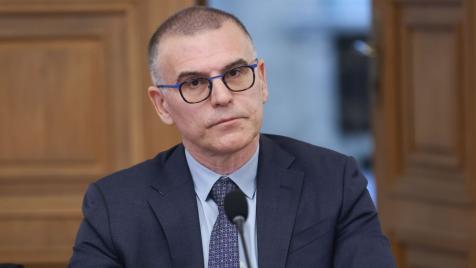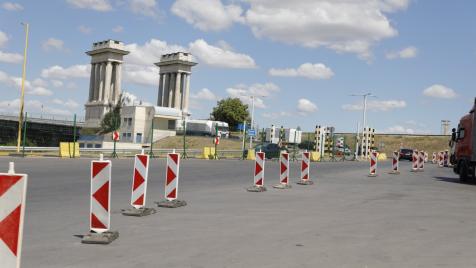BNB expects Bulgaria to meet the eurozone inflation criterion in January
The country will stay under the threshold until the end of the year, but there are risks to the forecast
© ECONOMIC.BG / BTA
In January, Bulgaria will meet the inflation criterion necessary for joining the eurozone and it will continue to do so for the rest of the year, according to the Bulgarian National Bank's (BNB) quarterly Macroeconomic Forecast.
In the last month of 2024, Bulgaria narrowly missed meeting the criterion, after the average annual inflation in Bulgaria turned out to be 0.1 points away from the level required to meet the Maastricht criterion.
Based on Bulgaria's current inflation forecast and the European Commission's latest inflation forecast for the other EU member states, Bulgaria is expected to meet the convergence criterion for price stability in January 2025 and continue to do so for the rest of the year," the BNB said in a statement.
However, the central bank adds that "there is a very high degree of uncertainty" regarding the price stability criterion, as well as the expected deviation of average annual inflation in Bulgaria from it.
What are the risks?
In its bulletin, the BNB forecasts that annual inflation for 2025 will be 3.5% (compared to 2.1% in 2024), while the average yearly inflation rate will accelerate from 2.6% in 2024 to 3.3% in the current year.
The central bank warns that there is a risk that the price increase will be greater than the baseline scenario.
These risks arise from the likelihood of higher international prices of raw energy materials compared to the assumptions set in the baseline scenario, as well as from a potentially greater-than-expected increase in administratively determined prices in Bulgaria," the experts write in the report.
Another risk is the faster transfer of labor costs from companies to end consumers.
Economic growth will accelerate
The bank outlines a positive trend in its forecast for Bulgaria's economic growth. It is expected to be 2.3% in 2024, accelerate slightly to 2.5% in 2025, and reach 3% in 2026.
As various economic analyses usually state, this dynamic will depend on private consumption, exports, and investments. However, the BNB warns that if the risk of higher and more sustained inflation in Bulgaria becomes a reality, consumption could contract.
Translated by Tzvetozar Vincent Iolov

 Simona Gotsova
Simona Gotsova 


